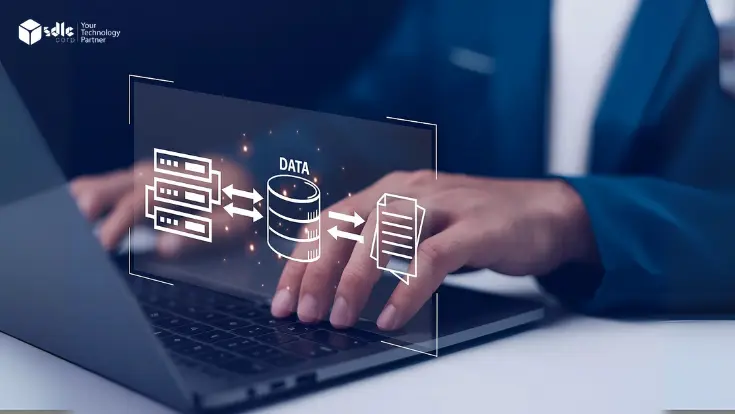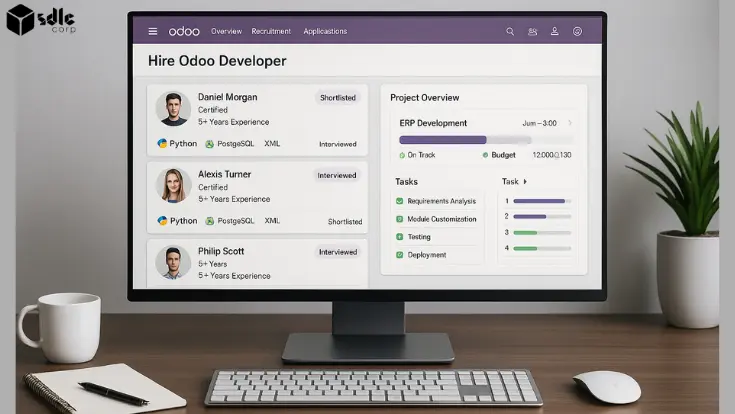Intrdouction
The rise of NFTs (Non-Fungible Tokens) has significantly impacted the gaming industry, reshaping how digital assets are traded, owned, and monetized. One of the key technologies driving this transformation is the use of smart contracts. Smart contracts offer transparency, security, and automation in NFT gaming, making them vital for managing the ownership and exchange of in-game assets. This article will delve into how smart contracts are influencing NFT gaming asset trading and their role in making the process more efficient.
NFT Game Development Company
Launch your next big NFT game with our expert development team.

Understanding Smart Contracts
Before diving into their role in NFT gaming, it’s essential to understand what smart contracts are. A smart contract is a self-executing contract where the terms and conditions are directly written into lines of code. These contracts operate on blockchain networks, ensuring that the contract is executed automatically once certain predefined conditions are met.
Smart contracts are decentralized, immutable, and transparent, providing several advantages over traditional contracts. They remove intermediaries, reduce costs, and offer higher levels of trust and security because once deployed, the code can’t be altered without consensus from the network. For these reasons, smart contracts are being widely adopted by NFT game development companies for managing in-game transactions and assets.
NFTs and Their Connection to Gaming
NFTs are digital assets that represent ownership of unique items or content on the blockchain. In gaming, NFTs can take the form of in-game characters, skins, weapons, virtual land, or any other digital collectible. Unlike traditional in-game assets, NFTs are owned by players rather than the game developers, making them transferable and tradable across platforms.
One of the most important aspects of NFTs in gaming is that they give players full ownership of their digital assets. This means they can sell, trade, or even rent their items to other players. However, managing these transactions requires a mechanism that can handle ownership transfers securely and transparently. This is where smart contracts come into play, providing an essential foundation for NFT gaming asset trading.
How Smart Contracts Enable NFT Gaming Asset Trading
1. Ownership and Provenance Tracking
One of the primary roles of smart contracts in NFT gaming is managing ownership and provenance. When a player acquires an in-game asset that is represented as an NFT, the smart contract records the transaction on the blockchain. This ensures that there is a transparent and immutable record of the asset’s ownership, which can be traced back to its origin.
For example, if a player buys a rare weapon from another player, the smart contract automatically transfers the ownership of the NFT from the seller to the buyer. The transaction is recorded on the blockchain, providing proof of ownership and ensuring that the asset cannot be duplicated or tampered with. This is particularly important for game developers and players who want to ensure the rarity and authenticity of in-game items.
NFT game development companies use this feature of smart contracts to maintain trust and transparency in their games. Players can confidently trade their assets, knowing that the ownership will be securely transferred without the need for intermediaries or third parties.
2. Automated and Secure Transactions
Smart contracts allow for automated transactions in NFT gaming. Since the contracts are programmed with predefined rules, they can automatically execute when certain conditions are met. For instance, if a player agrees to sell an NFT for a specific amount of cryptocurrency, the smart contract ensures that the asset is transferred to the buyer, and the payment is transferred to the seller without any manual intervention.
This automation eliminates the need for a middleman, reduces transaction costs, and speeds up the process. Additionally, since the terms of the contract are immutable, both parties can trust that the transaction will be executed as agreed.
Many NFT game development services utilize smart contracts to create marketplaces where players can trade their assets. These marketplaces are decentralized and powered by smart contracts, ensuring secure and transparent transactions between players.
3. Royalties and Creator Rights
One of the most exciting features of smart contracts in the NFT ecosystem is the ability to embed royalty mechanisms. In NFT gaming, smart contracts can be programmed to automatically pay royalties to creators every time an asset is resold. This is particularly beneficial for game developers, artists, or content creators who contribute to the game’s ecosystem by designing characters, weapons, or virtual worlds.
For example, if a game developer creates a unique NFT that is sold in the marketplace, they can receive a percentage of the sale every time the item is resold. Smart contracts automatically execute these royalty payments, ensuring that creators are compensated for their contributions.
This capability has made NFT development companies eager to adopt smart contracts, as it provides continuous revenue streams for creators long after the initial sale of an asset. It also encourages more creators to participate in the NFT gaming industry, knowing that their intellectual property rights will be protected and monetized.
NFT Game Development Services
Let’s build the future of gaming together, where every asset holds real-world value!

4. Governance and Decentralization
In traditional gaming ecosystems, the game developers hold all the control over the in-game economy and assets. However, with the integration of NFTs and smart contracts, games are becoming more decentralized. Smart contracts can be used to set up decentralized autonomous organizations (DAOs) within games, allowing players to have a say in the governance of the game’s economy.
For instance, a smart contract can be used to create a voting system where players can decide on changes to the in-game marketplace, rules for asset trading, or the development of new content. This decentralization empowers players and gives them a greater sense of ownership and control over the game’s ecosystem.
NFT game development companies often integrate DAO mechanisms into their games to foster community engagement and decentralized governance. This shift toward decentralization aligns with the broader trend in the blockchain space, where control is increasingly being placed in the hands of users rather than centralized entities.
Challenges and Considerations
While smart contracts offer numerous benefits for NFT gaming asset trading, they also present certain challenges that must be addressed.
1. Scalability
Blockchain networks, particularly those that rely on proof-of-work mechanisms like Ethereum, can face scalability issues. As the number of transactions increases, the network can become congested, leading to slower transaction times and higher fees. This is particularly problematic for NFT games that rely on frequent transactions for trading in-game assets.
2. Security Risks
Although smart contracts are designed to be secure, they are not immune to vulnerabilities. If there is a bug or flaw in the code, it can be exploited by hackers to steal assets or manipulate transactions. This makes it crucial for NFT game development companies to thoroughly audit their smart contracts and ensure that they are secure before deploying them on the blockchain.
The Future of Smart Contracts in NFT Gaming
The integration of smart contracts in NFT gaming asset trading is still in its early stages, but the potential for growth is enormous. As blockchain technology continues to evolve and mature, we can expect to see even more innovative use cases for smart contracts in the gaming industry.
In the future, smart contracts could enable cross-game asset trading, where players can transfer their NFTs between different games or platforms. This would create a truly interconnected gaming ecosystem, where players have full ownership and control over their digital assets, regardless of the game they are playing.
Furthermore, as more NFT development companies adopt blockchain technology, we can expect to see the creation of more sophisticated and complex smart contracts that enable new forms of gameplay and asset trading.

Conclusion
Smart contracts are playing a crucial role in the evolution of NFT gaming, enabling secure, automated, and transparent asset trading. They provide a foundation for ownership verification, secure transactions, royalty payments, and decentralized governance, all of which contribute to a more immersive and player-centric gaming experience.
As NFT game development companies continue to explore the potential of smart contracts, we can expect the gaming landscape to become more decentralized, transparent, and player-driven. With smart contracts at the core of these innovations, the future of NFT gaming looks promising and full of opportunities for players, developers, and creators alike.
By leveraging smart contracts, NFT game development services can create more engaging and secure gaming ecosystems, where players have true ownership of their assets and the freedom to trade, sell, or monetize them in new and exciting ways. Whether you are an NFT development company or a game enthusiast, the integration of smart contracts is set to redefine how we interact with and value digital assets in the gaming world.















